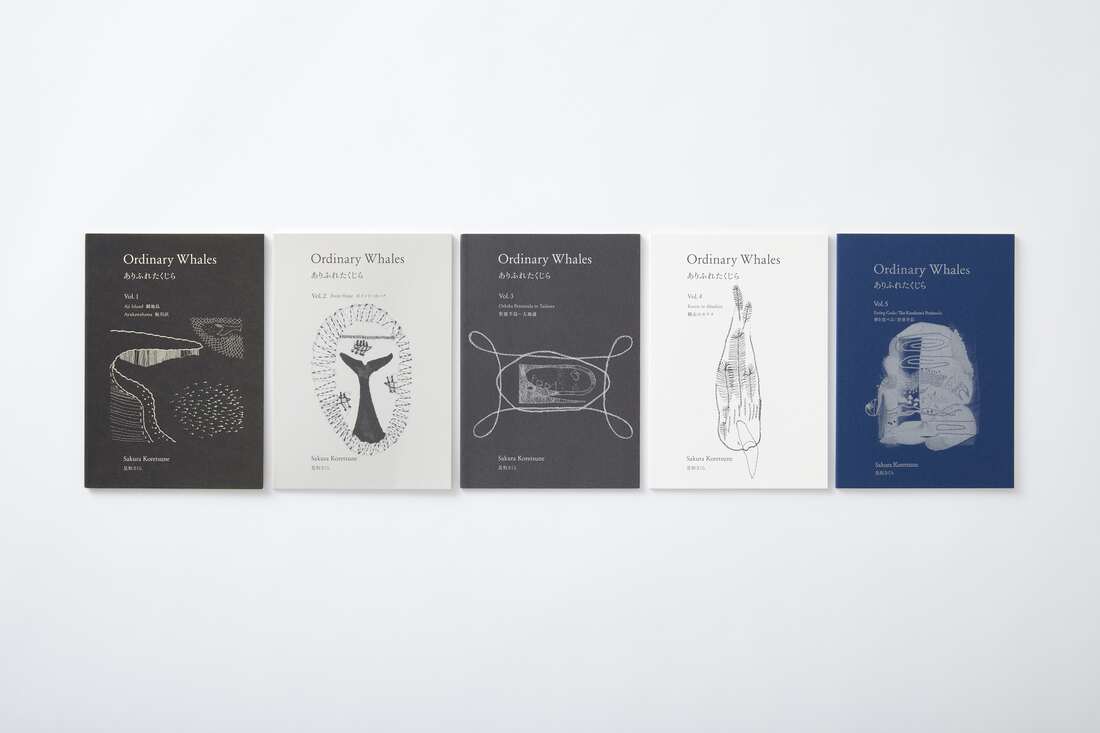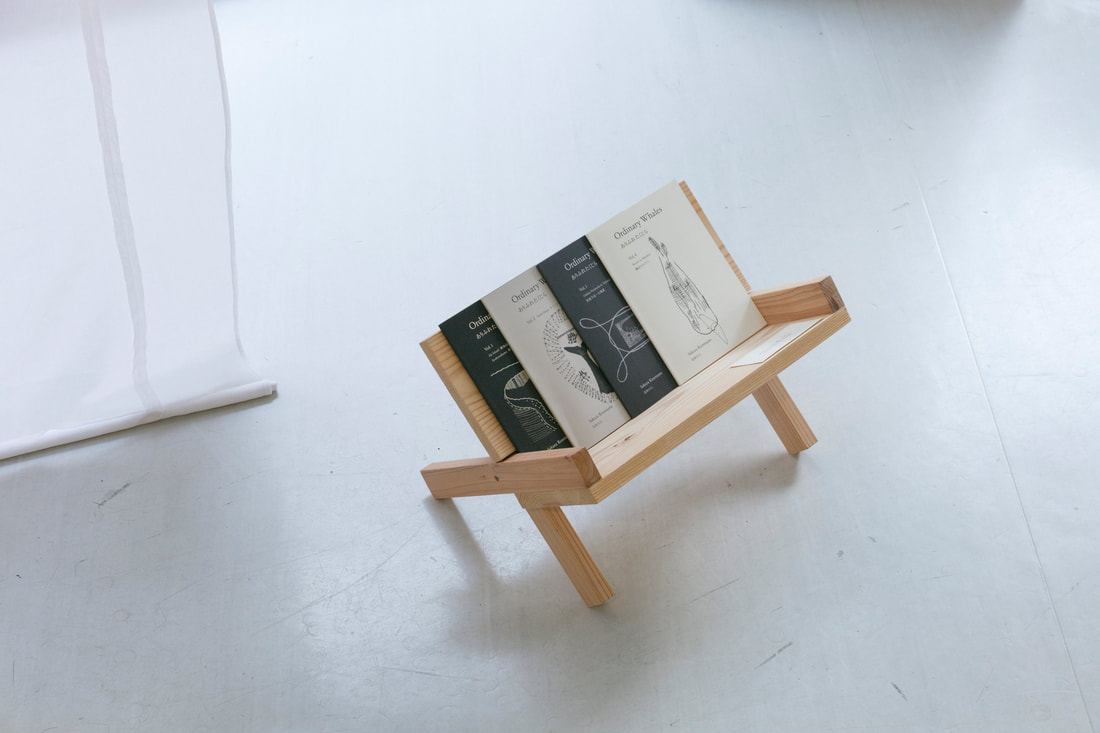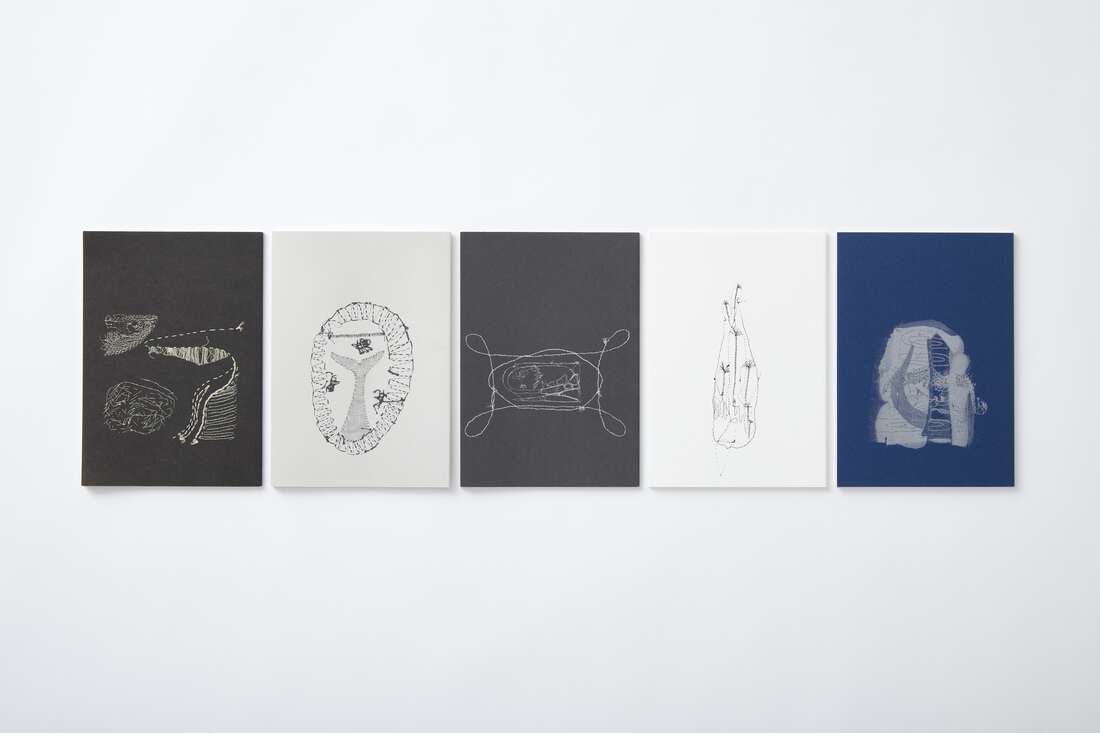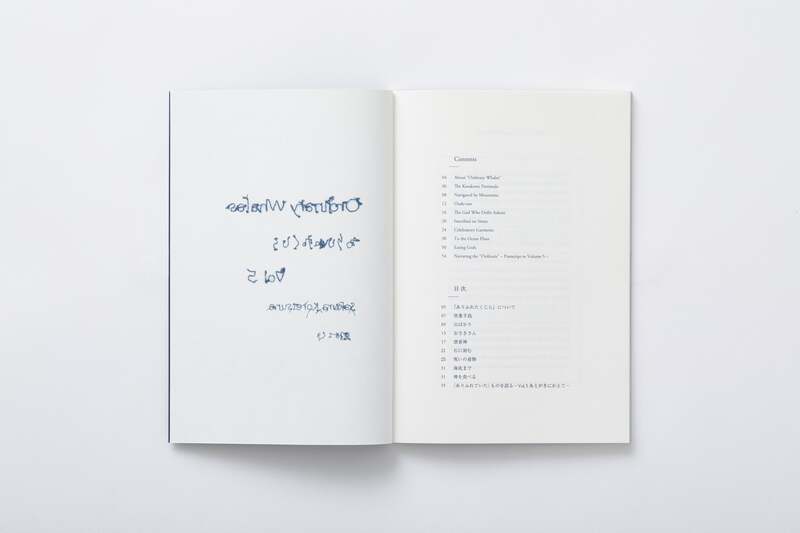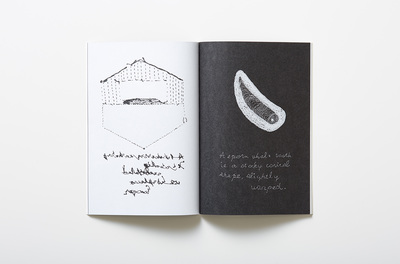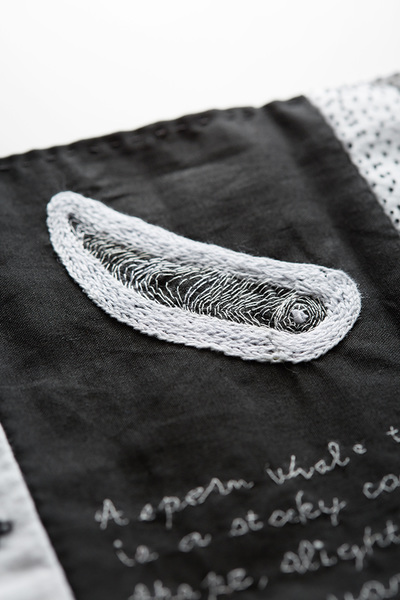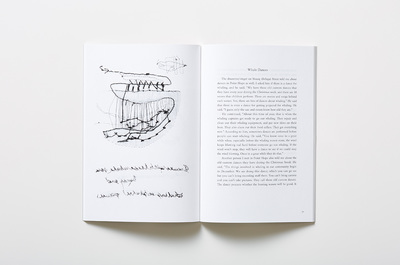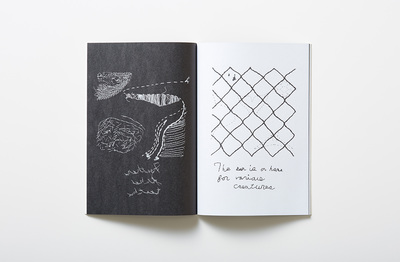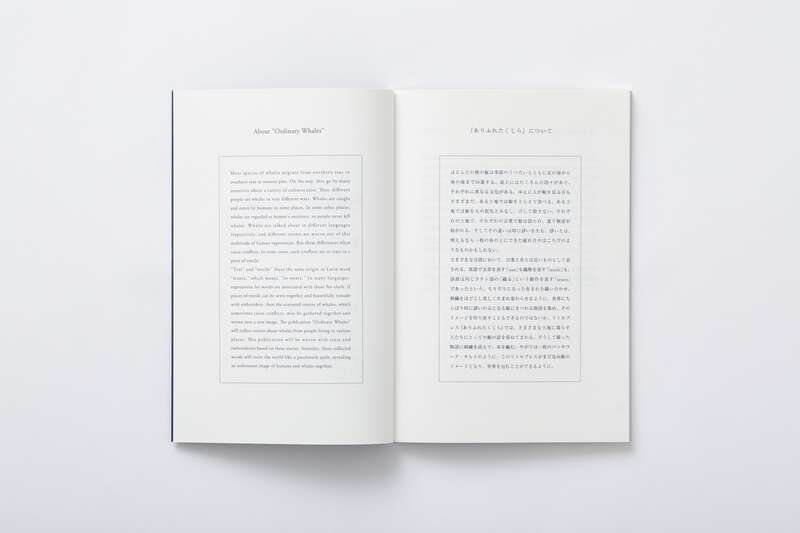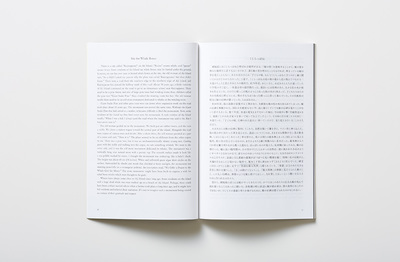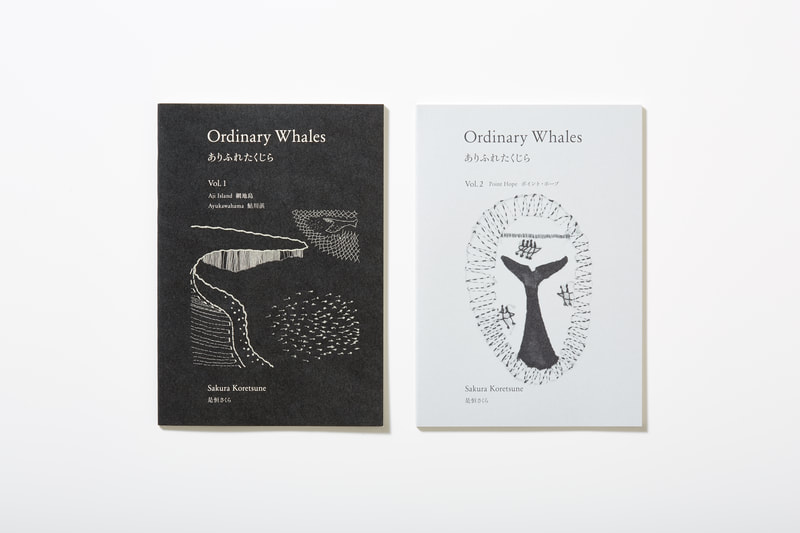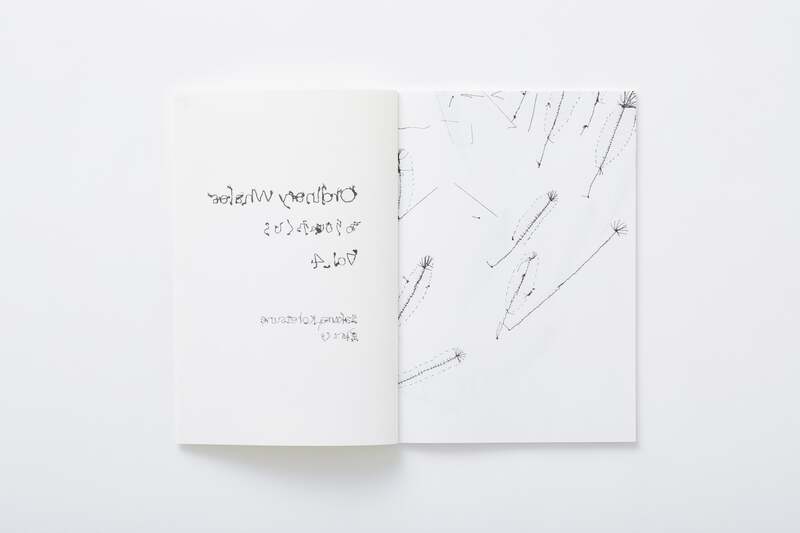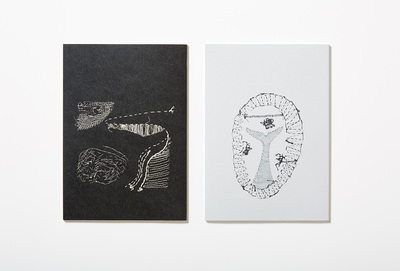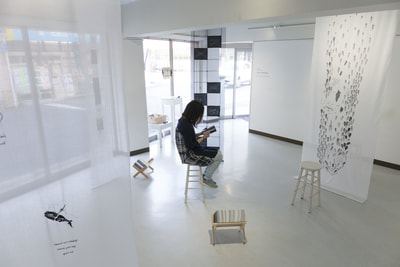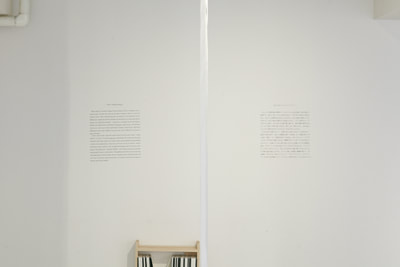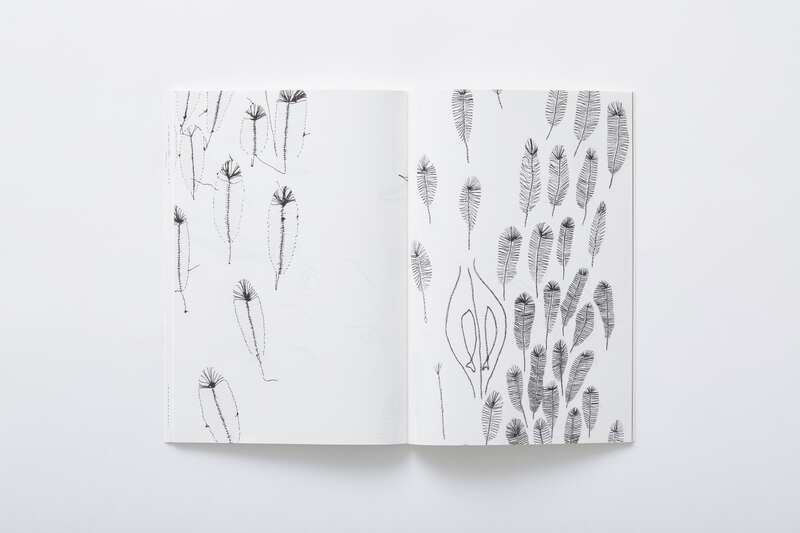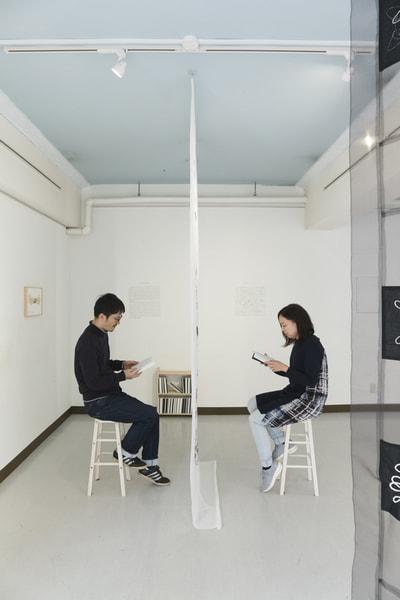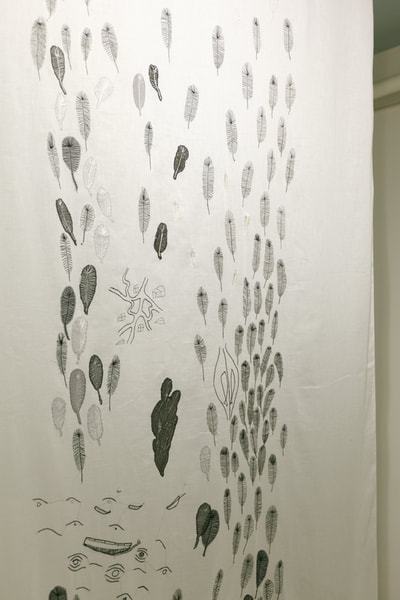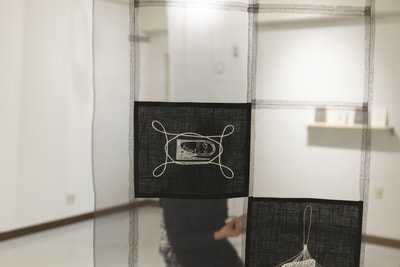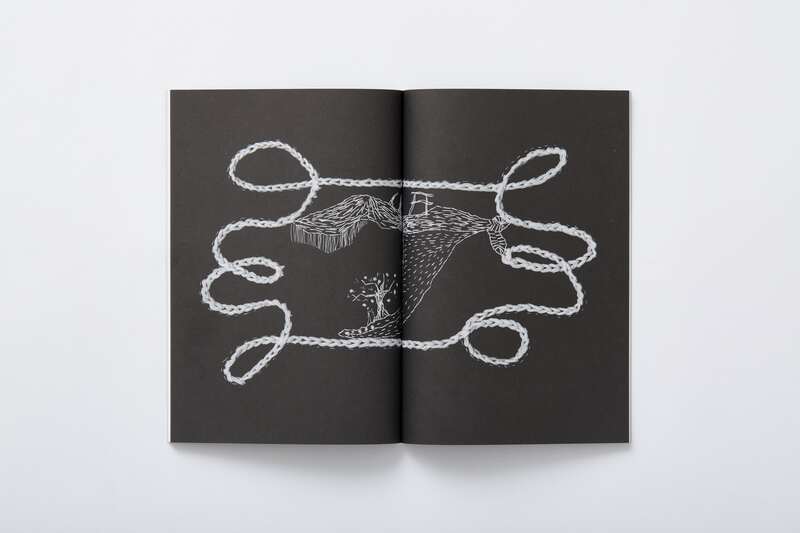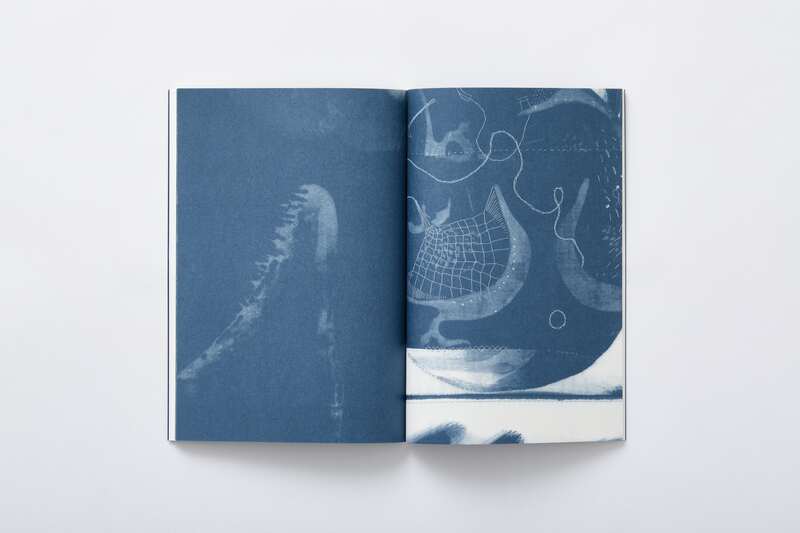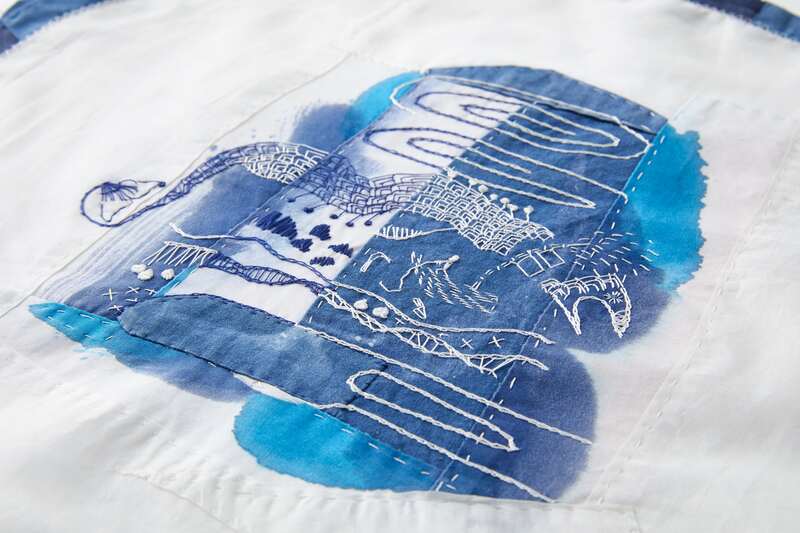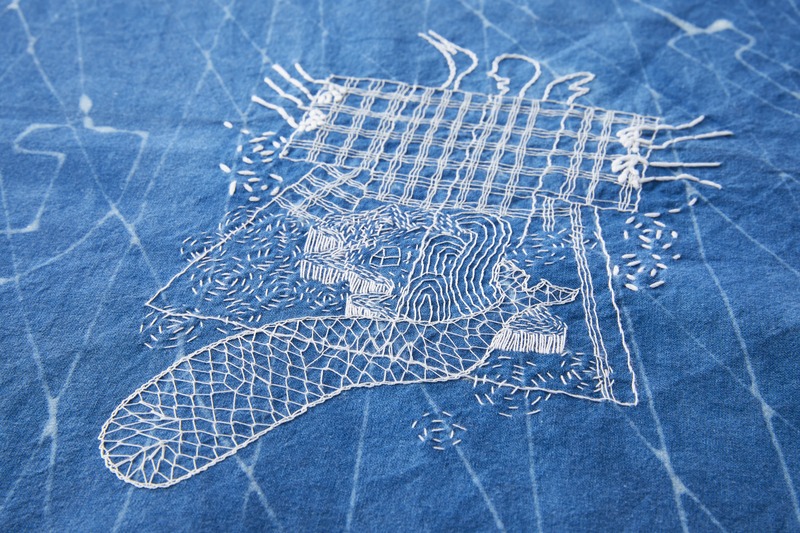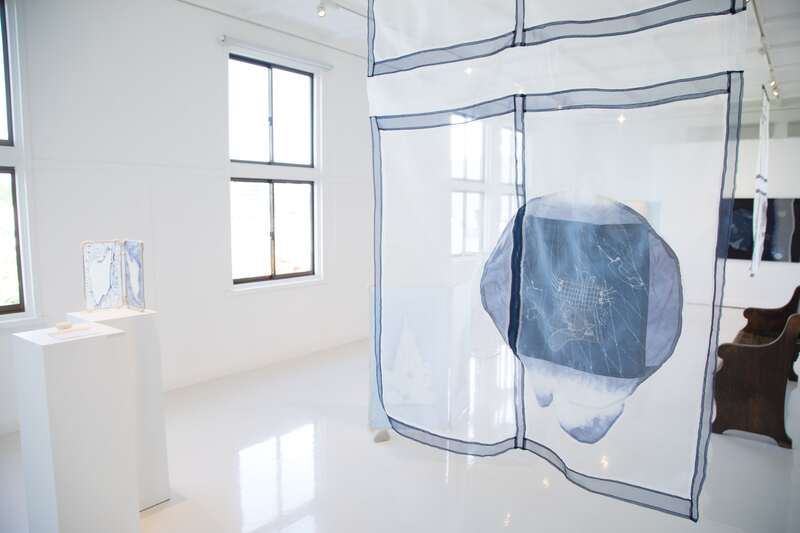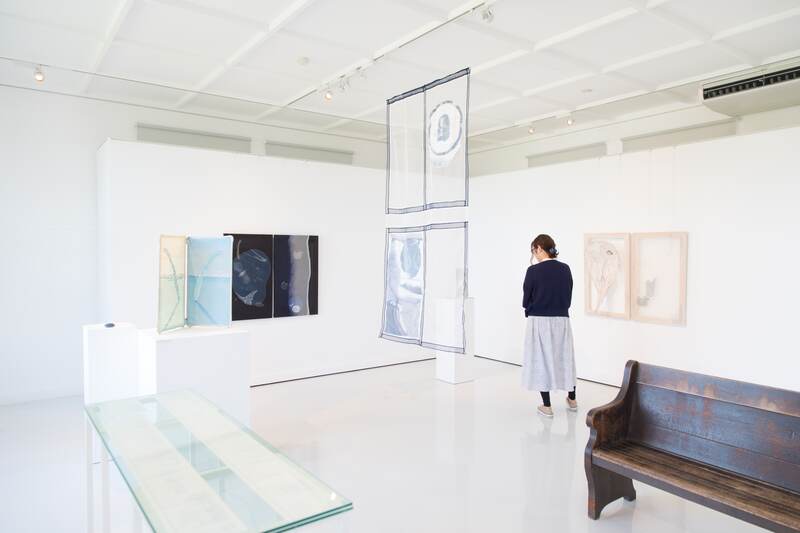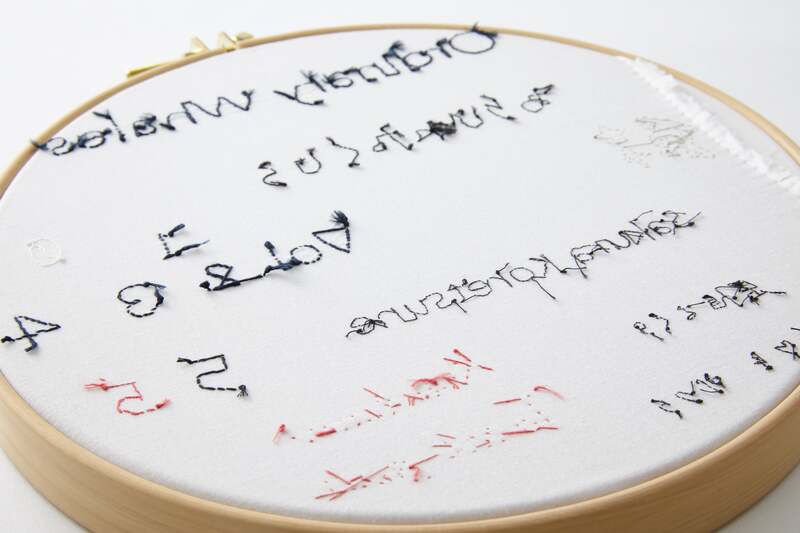- Exhibition Information & Current Activities 展覧会情報等と最近の活動報告
- where I am - everyday creation and travels
- Ordinary Whales / ありふれたくじら Vol.6
- back numbers | Ordinary Whales / ありふれたくじら
- Carta Cetacea / くじらじまの海図
- 汀線をゆく / Flowing along the shoreline
- Journal of Ordinary Whales / ありふれたくじらジャーナル
- 나(ネ)から私へ / Korean “I”, Japanese “I”.
- Swimming Tree / 泳ぐ木
- Fictional Toys (Aji Island, Miyagi Prefecture) / 空想玩具シリーズ(宮城県・網地島)
- Product 1: Ordinary Whale's Eye / ありふれたくじらの眼
- Product 2: Ordinary Whale's Light / ありふれたくじらの灯
- 藝術の旗をつくる / Making an "Art" Flag
- つみくさ / tsumikusa
- alaskana
- cv
- contact
About “Ordinary Whales”
Most species of whales migrate from northern seas to southern seas as seasons pass. On the way, they go by many countries where a variety of cultures exist. Thus, different people see whales in very different ways. Whales are caught and eaten by humans in some places. In some other places, whales are regarded as human’s ancestors, so people never kill whales. Whales are talked about in different languages respectively, and different stories are woven out of this multitude of human experiences. But these differences often cause conflicts. In some sense, such conflicts are as tears in a piece of textile.
“Text” and “textile” share the same origin in Latin word “texere,” which means, “to weave.” In many languages, expressions for words are associated with those for cloth. If pieces of textile can be sewn together and beautifully remade with embroidery, then the scattered stories of whales, which sometimes cause conflicts, may be gathered together and woven into a new image. The publication “Ordinary Whales” will collect stories about whales from people living in various places. This publication will be woven with texts and embroideries based on these stories. Someday, these collected words will cover the world like a patchwork quilt, revealing an unforeseen image of humans and whales together.
BACK NUMBERS
Vol.1: Aji Island / Ayukawahama(2016)
Vol.2: Point Hope (2016)
Vol.3: Oshika Peninsura to Taijiura (2017)
Vol.4: Raven in Abashiri (2017)
Vol.5: Eating Gods: The Karakuwa Peninsula (2018)
Vol.6: Shinnecock Indian Nation, Long Island (2020)
「ありふれたくじら」について
ほとんどの種の鯨は季節のうつろいとともに北の海から南の海まで回遊する。途上にはたくさんの国々があり、それぞれに異なる文化がある。ゆえに人が鯨を見る目もさまざまだ。ある土地では鯨をとらえて食べる。ある土地では鯨を人の祖先とみなし、けして殺さない。それぞれの土地で、それぞれの言葉で鯨は語られ、違う物語が紡がれる。そしてその違いは時に諍いを生む。諍いとは、例えるなら一枚の布の上にできた破れ目やほころびのようなものかもしれない。
さまざまな言語において、言葉と布とは近いものとして表される。英語で文章を表す「text」も織物を表す「textile」も、語源は同じラテン語の「織る」という動作を表す「texere」であったという。ちりぢりになった布きれを縫い合わせ、刺繍をほどこし美しく生まれ変わらせるように、世界にちらばり時に諍いの元となる鯨にまつわる物語を集め、そのイメージを作り直すこともできるのではないか。リトルプレス「ありふれたくじら」では、さまざまな土地に暮らす人たちにとっての鯨の話を尋ねてまわる。そうして綴った物語に刺繍を添えて、本を編む。やがては一枚のパッチワーク・キルトのように、このリトルプレスがまだ見ぬ鯨のイメージとなり、世界を包むことができるように。
バックナンバー
Vol.1: 網地島/鮎川浜(2016)
Vol.2: ポイント・ホープ (2016)
Vol.3: 牡鹿半島〜太地浦 (2017)
Vol.4: 網走のカラス (2017)
Vol.5: 神を食べる:唐桑半島(2018)
Vol.6:シネコック・インディアン・ネーション、ロングアイランド(2020)
Most species of whales migrate from northern seas to southern seas as seasons pass. On the way, they go by many countries where a variety of cultures exist. Thus, different people see whales in very different ways. Whales are caught and eaten by humans in some places. In some other places, whales are regarded as human’s ancestors, so people never kill whales. Whales are talked about in different languages respectively, and different stories are woven out of this multitude of human experiences. But these differences often cause conflicts. In some sense, such conflicts are as tears in a piece of textile.
“Text” and “textile” share the same origin in Latin word “texere,” which means, “to weave.” In many languages, expressions for words are associated with those for cloth. If pieces of textile can be sewn together and beautifully remade with embroidery, then the scattered stories of whales, which sometimes cause conflicts, may be gathered together and woven into a new image. The publication “Ordinary Whales” will collect stories about whales from people living in various places. This publication will be woven with texts and embroideries based on these stories. Someday, these collected words will cover the world like a patchwork quilt, revealing an unforeseen image of humans and whales together.
BACK NUMBERS
Vol.1: Aji Island / Ayukawahama(2016)
Vol.2: Point Hope (2016)
Vol.3: Oshika Peninsura to Taijiura (2017)
Vol.4: Raven in Abashiri (2017)
Vol.5: Eating Gods: The Karakuwa Peninsula (2018)
Vol.6: Shinnecock Indian Nation, Long Island (2020)
「ありふれたくじら」について
ほとんどの種の鯨は季節のうつろいとともに北の海から南の海まで回遊する。途上にはたくさんの国々があり、それぞれに異なる文化がある。ゆえに人が鯨を見る目もさまざまだ。ある土地では鯨をとらえて食べる。ある土地では鯨を人の祖先とみなし、けして殺さない。それぞれの土地で、それぞれの言葉で鯨は語られ、違う物語が紡がれる。そしてその違いは時に諍いを生む。諍いとは、例えるなら一枚の布の上にできた破れ目やほころびのようなものかもしれない。
さまざまな言語において、言葉と布とは近いものとして表される。英語で文章を表す「text」も織物を表す「textile」も、語源は同じラテン語の「織る」という動作を表す「texere」であったという。ちりぢりになった布きれを縫い合わせ、刺繍をほどこし美しく生まれ変わらせるように、世界にちらばり時に諍いの元となる鯨にまつわる物語を集め、そのイメージを作り直すこともできるのではないか。リトルプレス「ありふれたくじら」では、さまざまな土地に暮らす人たちにとっての鯨の話を尋ねてまわる。そうして綴った物語に刺繍を添えて、本を編む。やがては一枚のパッチワーク・キルトのように、このリトルプレスがまだ見ぬ鯨のイメージとなり、世界を包むことができるように。
バックナンバー
Vol.1: 網地島/鮎川浜(2016)
Vol.2: ポイント・ホープ (2016)
Vol.3: 牡鹿半島〜太地浦 (2017)
Vol.4: 網走のカラス (2017)
Vol.5: 神を食べる:唐桑半島(2018)
Vol.6:シネコック・インディアン・ネーション、ロングアイランド(2020)
photo: Yoshihiko Shikada
<NEW!| 2020/8/27>
『Ordinary Whales / ありふれたくじら』Vol.6 刊行しました。
販売情報は、こちらにてお知らせしております。
------
『Ordinary Whales / ありふれたくじら』Vol.5 販売情報
以下の書店でお買い求めいただけます。(2020/08/18 更新)
【岩手】Cyg art gallery ※ネット販売あり。
【宮城・石巻】観慶丸本店
【宮城・塩竈】塩竈市杉村惇美術館
【宮城拠点〜各地】移動本屋 ペンギン文庫 ※選書内容によります。
【茨城】crevasse ※ネット販売あり。
【栃木】studio baco
【東京】本屋B&B
【東京】書肆サイコロ
【東京】SHIBUYA PUBLISHING & BOOKSELLERS
【愛知】ON READING ※ネット販売あり。
【広島】READAN DEAT
【鳥取】汽水空港
【福岡】ナツメ書店
------
『Ordinary Whales / ありふれたくじら』Vol.3、Vol.4 販売情報
以下の書店などでお買い求めいただけます。(2019/2/11 更新)
【岩手】Cyg art gallery ※ネット販売あり。
【宮城拠点〜各地】移動本屋 ペンギン文庫 ※選書内容によります。
【宮城・石巻】観慶丸本店
【宮城・仙台】ボタン
【茨城】crevasse ※ネット販売あり。
【東京】本屋B&B
【愛知】ON READING ※ネット販売あり。
【広島】READAN DEAT
【鳥取】汽水空港
【福岡】ナツメ書店
------
*購入希望のみなさまへ*
Vol.1、2は好評につき、ほぼすべての店舗でsold outとなっているようです。
*書店のみなさまへ*
『Ordinary Whales / ありふれたくじら』は販売場所を各地に広げたいと願っています。お取り扱いのご相談・ご提案は、CONTACTよりご連絡ください。
『Ordinary Whales / ありふれたくじら』Vol.6 刊行しました。
販売情報は、こちらにてお知らせしております。
------
『Ordinary Whales / ありふれたくじら』Vol.5 販売情報
以下の書店でお買い求めいただけます。(2020/08/18 更新)
【岩手】Cyg art gallery ※ネット販売あり。
【宮城・石巻】観慶丸本店
【宮城・塩竈】塩竈市杉村惇美術館
【宮城拠点〜各地】移動本屋 ペンギン文庫 ※選書内容によります。
【茨城】crevasse ※ネット販売あり。
【栃木】studio baco
【東京】本屋B&B
【東京】書肆サイコロ
【東京】SHIBUYA PUBLISHING & BOOKSELLERS
【愛知】ON READING ※ネット販売あり。
【広島】READAN DEAT
【鳥取】汽水空港
【福岡】ナツメ書店
------
『Ordinary Whales / ありふれたくじら』Vol.3、Vol.4 販売情報
以下の書店などでお買い求めいただけます。(2019/2/11 更新)
【岩手】Cyg art gallery ※ネット販売あり。
【宮城拠点〜各地】移動本屋 ペンギン文庫 ※選書内容によります。
【宮城・石巻】観慶丸本店
【宮城・仙台】ボタン
【茨城】crevasse ※ネット販売あり。
【東京】本屋B&B
【愛知】ON READING ※ネット販売あり。
【広島】READAN DEAT
【鳥取】汽水空港
【福岡】ナツメ書店
------
*購入希望のみなさまへ*
Vol.1、2は好評につき、ほぼすべての店舗でsold outとなっているようです。
*書店のみなさまへ*
『Ordinary Whales / ありふれたくじら』は販売場所を各地に広げたいと願っています。お取り扱いのご相談・ご提案は、CONTACTよりご連絡ください。
From “Ordinary Whales”
The publication “Ordinary Whales” is calling for stories about whales. Please share your stories about whales with us. If you know someone who knows about whales well or some place that has been involved with whales, please send the information to: [email protected]
『ありふれたくじら』から
リトルプレス『ありふれたくじら』では、鯨にまつわる話を探しています。鯨の話に詳しい人や鯨と関わりの深い場所もご紹介くださる方はご連絡ください。 メール:[email protected]
The publication “Ordinary Whales” is calling for stories about whales. Please share your stories about whales with us. If you know someone who knows about whales well or some place that has been involved with whales, please send the information to: [email protected]
『ありふれたくじら』から
リトルプレス『ありふれたくじら』では、鯨にまつわる話を探しています。鯨の話に詳しい人や鯨と関わりの深い場所もご紹介くださる方はご連絡ください。 メール:[email protected]
